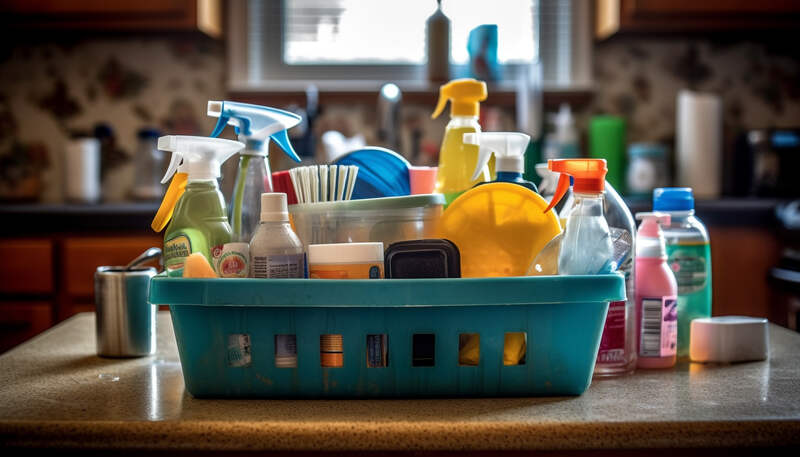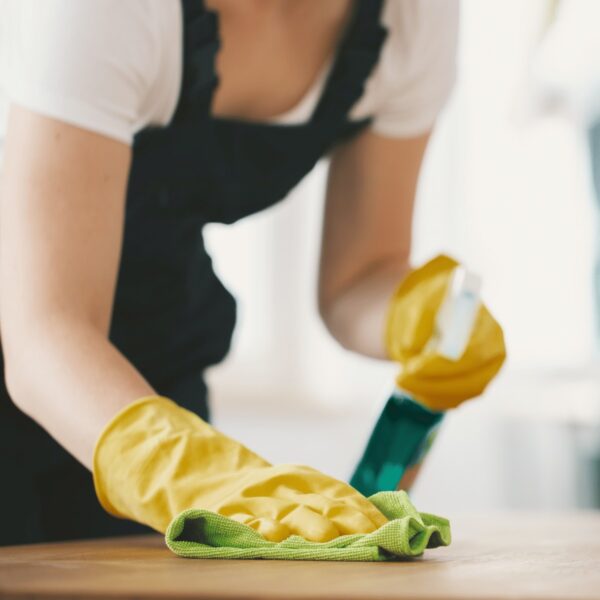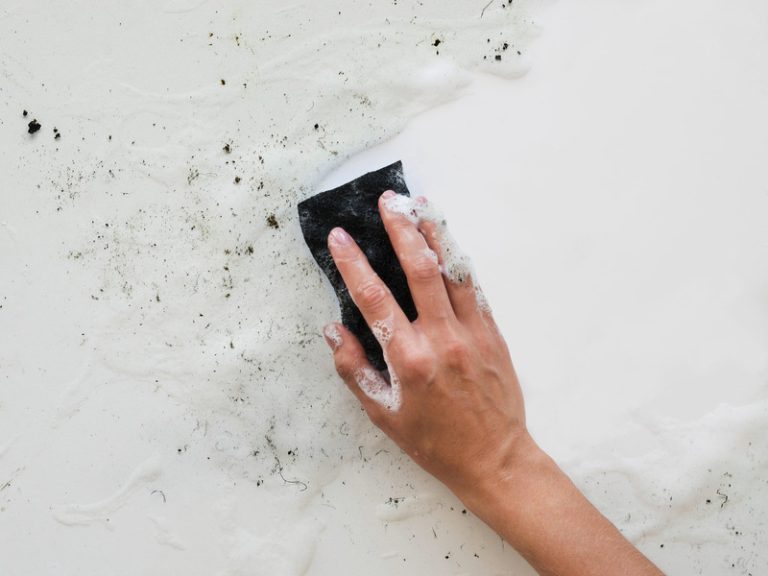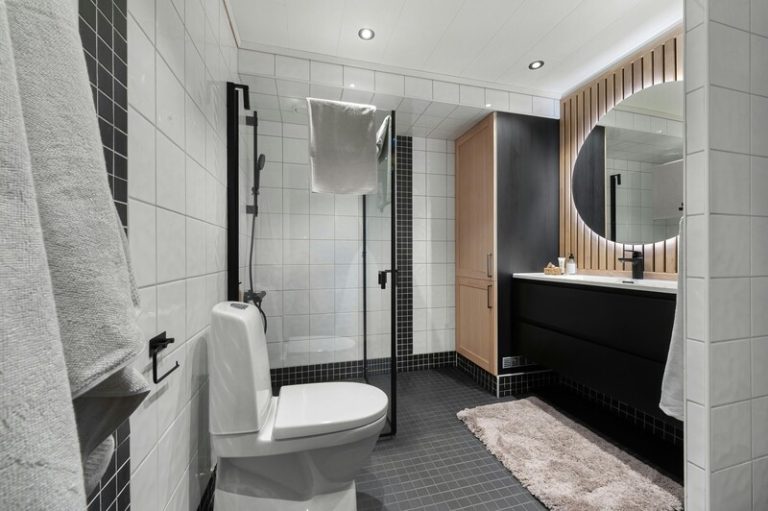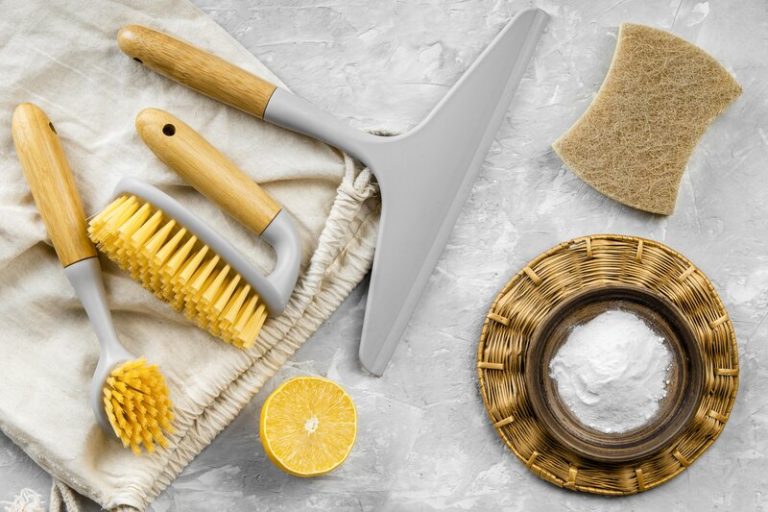Cleaning products are an essential part of maintaining a clean and healthy home, but mixing certain products can be extremely dangerous. So, what cleaning products should you not mix?
We will discuss the importance of knowing what cleaning products not to mix, the common household cleaning products, and the chemical reactions and health risks that can occur when these products are combined.
Find out about combining cleaning products to avoid mixing and get tips on how to clean safely without having to use cleaning products mixing dangerous to keep your home safe.
The Importance of Knowing What Cleaning Products Should You Not Mix
Understanding what two cleaning products should never be mixed is crucial to avoid harmful chemical reactions that can result in toxic fumes, burns, or other health hazards.
Knowing the risks associated with combining certain cleaning agents can protect individuals, families, and homes from potential dangers.
Mixing bleach with ammonia, for example, releases chloramine vapours, which can lead to respiratory problems, throat irritation, and even chemical burns.
Similarly, combining bleach with vinegar produces toxic chlorine gas, which poses serious health risks if inhaled. So, if you’re wondering what cleaning products make chlorine gas, then that’s one example.
Being aware of these interactions and following proper usage guidelines is essential for maintaining a safe, toxin-free cleaning routine.
Common Household Cleaning Products
Common household cleaning products include bleach, vinegar, Dettol, hydrogen peroxide, and castile soap, among others.
Each of these products serves a different purpose in maintaining a clean and hygienic living environment.
- Bleach: Bleach is a powerful disinfectant that can effectively kill germs and bacteria on various surfaces.
- Vinegar: Vinegar is known for its natural cleaning properties and is often used to cut through grease and grime.
- Dettol: Dettol is a popular brand that offers a wide range of disinfecting sprays and wipes, ideal for sanitising high-touch areas.
- Hydrogen peroxide: Hydrogen peroxide is a versatile cleaner that can tackle tough stains and mould.
- Castile soap: Castile soap is a gentle yet effective option for general cleaning tasks without harsh chemicals.
What Happens When You Mix Cleaning Products?
Mixing cleaning products can lead to chemical reactions that produce hazardous substances like chlorine gas, sodium acetate, or chloramine. These reactions can pose serious health risks, including respiratory issues, skin irritation, or even poisoning. Find out the full explanation below:
a. Chemical Reactions That Can Occur
When certain cleaning products are mixed, chemical reactions can occur that release gases such as chlorine gas or chloroform. These reactions are often unpredictable and can result in the formation of toxic compounds that are harmful when inhaled or come into contact with the skin.
Chlorine gas, for instance, can be produced when bleach is mixed with acidic cleaners like vinegar, leading to serious respiratory issues. On the other hand, the combination of ammonia-based products with bleach may result in the release of chloramine vapours, causing irritation and potential damage to the respiratory system.
Therefore, it is important to understand the potential risks involved as well as why some people are more inclined not to mix cleaning products and always follow product instructions carefully.
Avoiding such mixtures not only protects your health but also prevents hazardous gases from spreading in your living environment.
b. Possible Health Risks
Mixing certain cleaning products can result in severe health risks, including respiratory problems from inhaling chlorine gas, skin irritation due to exposure to chloroform, or eye irritation caused by contact with hydrogen peroxide. These health risks highlight the importance of understanding what cleaning products should not be mixed.
When chemicals from different cleaning agents mix, they can create toxic gases that are extremely harmful if inhaled. For example, combining bleach and ammonia can lead to the production of chloramine vapours, causing coughing, chest pain, and even pneumonia.
Similarly, mixing bleach with vinegar can release chlorine gas, which can lead to breathing difficulties and throat irritation. Along with respiratory issues, these chemical reactions can also result in skin burns and eye damage, emphasising the need for caution when using household cleaning products.
Therefore, do not mix cleaning products haphazardly without knowing the instructions and potential risks.
What Cleaning Products Should You Not Mix?
There are some cleaning products you should never mix to prevent harmful chemical reactions. So, if you’re asking whether it is okay to mix cleaning products, it’s basically okay as long as you know the right combination.
Here are the answers and further explanation on what cleaning products you should not mix.
a. Bleach and Ammonia
First on the list of cleaning products that are not safe to mix are bleach and ammonia. Mixing bleach and ammonia can result in the production of chloramine gas, a toxic compound that can cause respiratory issues, chest pain, or other severe health problems.
Experts strongly advise against combining these two cleaning agents due to the risks involved.
When bleach and ammonia are mixed, a chemical reaction occurs that releases chloramine gas into the air. This gas can irritate the respiratory system, causing coughing, wheezing, and shortness of breath. Prolonged exposure to chloramine gas may lead to more serious health effects such as pulmonary oedema or asthma exacerbation.
It is essential to understand the potential dangers of using these products together. The American Cleaning Institute emphasises the importance of reading product labels carefully and following the manufacturer’s instructions to ensure the safe handling and usage of cleaning agents.
b. Bleach and Vinegar
Aside from bleach and ammonia, the next on the list of cleaning products that are dangerous to mix is bleach and vinegar.
Combining bleach and vinegar can create chlorine gas, a highly toxic substance that can lead to respiratory distress, coughing, and even pulmonary oedema. The oxidation reaction between bleach and vinegar yields harmful fumes that should be avoided at all costs.
When bleach and vinegar are mixed, the chlorine gas that forms can cause a range of health problems, from mild irritation to severe respiratory issues.
Chlorine gas is particularly dangerous as it can lead to throat and lung irritation, shortness of breath, and in extreme cases, pulmonary oedema, a condition where fluid accumulates in the lungs, making breathing incredibly difficult.
c. Bleach and Rubbing Alcohol
When bleach and surgical spirit are combined, they can produce chloroform, a hazardous substance that can cause dizziness, nausea, or even damage to the central nervous system. Lysol Multi-Purpose Cleaning Spray, which contains alcohol, should not be mixed with bleach for safety reasons.
Chloroform, often recognised by its sweet, sharp odour, is a volatile chemical that can present serious health risks upon inhalation or skin contact. The reaction between bleach (containing sodium hypochlorite) and isopropyl alcohol results in the release of chloroform vapour, which can be harmful even in small amounts.
Exposure to chloroform can lead to symptoms such as headache, respiratory distress, and in severe cases, unconsciousness. Long-term exposure may have more detrimental effects on the liver and kidneys. It is crucial to always read product labels and follow safety guidelines when using household cleaning agents to avoid accidental chemical reactions.
d. Bleach and Hydrogen Peroxide
Combining bleach and hydrogen peroxide can lead to the formation of harmful peracetic acid, a corrosive substance that can irritate the skin, eyes and respiratory tract.
Hydrogen peroxide-based products should never be mixed with bleach due to the risks of chemical reactions.
This chemical combination can result in the release of toxic vapours, posing serious health risks to individuals exposed to the fumes. Inhalation of these chemicals can lead to respiratory problems, including coughing, throat irritation and shortness of breath. Direct contact with peracetic acid can cause burns, skin irritation and even permanent eye damage. The importance of proper ventilation and protective gear when handling such chemical products cannot be overstated to prevent accidents and health complications.
e. Ammonia and Vinegar
Other cleaning products you should not mix are ammonia and vinegar. The mixture of ammonia and vinegar can produce toxic chloramine vapours, which can cause respiratory problems, eye irritation, and throat burns.
Experts in the field of cleaning and household products do not recommend combining ammonia with vinegar due to the health risks involved.
Ammonia is a common household cleaner, often used for its strong disinfectant properties. When combined with vinegar, a common cleaning agent, a chemical reaction occurs that releases chloramine vapours. Inhaling these vapours can lead to coughing, shortness of breath, and chest pain. Exposure to chloramine can aggravate respiratory conditions such as asthma.
It is recommended to always use cleaning chemicals separately, in well-ventilated areas, and to follow manufacturer instructions for safe handling.
f. Ammonia and Rubbing Alcohol
The combination of ammonia and surgical spirit can result in the release of harmful gases like chloroform, which can lead to dizziness, nausea, or respiratory issues. The National Poison Information Service warns against mixing ammonia with surgical spirit due to the health risks involved.
Chloroform, a toxic substance that can cause central nervous system depression, is produced when ammonia and surgical spirit react. Exposure to chloroform can result in headaches, dizziness, and irritation of the eyes, throat, and lungs. Inhaling chloroform vapours in high concentrations may even lead to more severe effects such as unconsciousness or organ damage. Due to these dangers, experts strongly advise against combining these chemicals to avoid accidental exposure and potential harm to human health.
g. Ammonia and Hydrogen Peroxide
When ammonia and hydrogen peroxide are combined, they can create hazardous compounds and release toxic fumes that may cause respiratory problems or skin irritation. Cleaning experts advise against mixing ammonia with hydrogen peroxide for safety reasons.
Ammonia, a common household cleaner, is a powerful alkaline substance, while hydrogen peroxide is a strong oxidising agent. When these two chemicals are mixed together, their reaction produces a potentially harmful compound called peracetic acid. This compound can lead to severe respiratory issues when inhaled, such as coughing, shortness of breath, or even lung damage.
Chemical reactions from this combination may also result in the release of chlorine gas, a highly toxic substance that can lead to difficulty breathing, chest pain, and in extreme cases, respiratory failure.
Kathy Cohoon emphasises the importance of safety recommendations, suggesting that individuals never mix ammonia and hydrogen peroxide as it can have disastrous consequences on health and well-being. It is crucial to always follow proper cleaning instructions and use chemicals as directed to avoid any potential hazards.
h. Vinegar and Hydrogen Peroxide
Combining vinegar and hydrogen peroxide can result in peracetic acid formation, a corrosive substance that can irritate the skin, eyes, and respiratory system. Castile soap, known for its natural cleaning properties, should not be mixed with vinegar and hydrogen peroxide to prevent harmful reactions.
When vinegar and hydrogen peroxide are combined, the reaction produces a chemical called peracetic acid, which is highly corrosive and can cause skin burns, eye irritation, and respiratory issues if inhaled. This mixture poses significant health risks and should be handled with caution. To ensure safety, it’s essential to keep these substances separate and avoid mixing them together.
i. Vinegar and Rubbing Alcohol
The mixture of vinegar and surgical spirit can produce acetic acid and isopropyl alcohol, which are not harmful in small quantities. Excessive exposure to these substances can still cause health issues. Cleaning experts do not recommend combining vinegar with surgical spirit for safety reasons.
When vinegar and surgical spirit are combined, they can create a solution that is effective for cleaning and disinfecting surfaces due to their antibacterial properties. The acetic acid in vinegar is known for its ability to kill bacteria and viruses, while isopropyl alcohol is a common disinfectant that can destroy germs on various surfaces.
Despite their individual benefits, mixing these two substances can lead to the formation of harmful compounds such as peracetic acid, which can be irritating to the skin, eyes and respiratory system. This chemical reaction can also release toxic fumes that may cause giddiness, nausea, and respiratory discomfort upon inhalation.
j. Rubbing Alcohol and Hydrogen Peroxide
When surgical alcohol and hydrogen peroxide are combined, they can react to form a potentially harmful or ineffective solution.
When these substances are mixed, it can lead to chemical reactions that produce hazardous compounds or reduce their cleaning effectiveness. For instance, the combination of surgical alcohol and hydrogen peroxide may produce acetone peroxide, a highly unstable and explosive substance.
Along with the potential risks of creating harmful substances, mixing cleaning agents like liquid soap with chemical compounds like surgical alcohol and hydrogen peroxide can render them less efficient in performing their intended cleaning tasks.
It is crucial to avoid combining liquid soap with surgical alcohol and hydrogen peroxide to prevent unintended chemical reactions and maintain the effectiveness of these cleaning products.
How Can You Safely Clean Without Mixing Products?
Now that you know what cleaning products you should not mix and the potential risks, consider using safe cleaning products without mixing certain combinations of ingredients. Here is a further explanation of how you can clean safely without mixing products.
a. Utilise one product at a time.
When cleaning, it is essential to use one cleaning product at a time to prevent accidental mixing and potential chemical reactions. Focusing on one product ensures effective cleaning without the risks associated with combining incompatible agents.
This approach not only simplifies the cleaning process but also reduces the likelihood of adverse outcomes. By sticking to a single product, individuals can better control the application and dilution, leading to more consistent results. Focusing on one cleaner at a time allows for a clearer understanding of its ingredients and the specific surfaces it is suitable for, enhancing cleaning efficiency and safety.
b. Read Labels and Follow Instructions
Reading labels and following instructions on cleaning products are crucial steps to ensure safe and effective cleaning practices.
By adhering to the product guidelines, individuals can prevent mishaps such as mixing incompatible chemicals that could result in toxic fumes and other hazards. Understanding the various symbols and warnings on labels also plays a key role in utilising the product correctly, and avoiding damage to surfaces or fabrics. These instructions provide a roadmap for achieving optimal results without causing harm to oneself or the environment.
c. Use Natural Cleaning Alternatives
Opting for natural cleaning alternatives, such as vinegar, baking soda, or castile soap, can provide effective cleaning solutions without the risks associated with chemical reactions. Many experts advocate for natural cleaning products to maintain a safe and eco-friendly cleaning environment.
These natural options not only effectively remove dirt and grime but also offer a safer alternative for households, especially for those with children or pets. The versatility of ingredients like vinegar and baking soda allows for multiple cleaning applications, from degreasing kitchen surfaces to freshening laundry. In addition, the lack of harsh chemicals in these products helps in reducing indoor air pollution and minimising environmental harm from conventional cleaning agents. By incorporating natural cleaning methods, individuals can contribute to a more sustainable and healthier living space.
d. Properly Dispose of Cleaning Products
Proper disposal of cleaning products is essential to prevent environmental contamination and health hazards. It is very important to follow disposal guidelines to protect both individuals and the environment.
Improper disposal of cleaning products, such as pouring them down drains or into the bin, can have serious consequences.
Chemicals in these products can leach into soil and water sources leading to pollution and potential harm to wildlife and human health.
UK Government provide clear instructions on how to properly dispose of cleaning agents, including recycling containers and hazardous waste disposal facilities. By adhering to these guidelines, individuals can contribute to a safer and healthier environment for future generations.
Conclusion
There you have it, a list of what cleaning products you should not mix. Given the potential health risks associated with mixing cleaning products, it’s evident that caution is paramount when it comes to household cleaning.
Instead of risking harmful chemical reactions by mixing products, why not consider the safer alternative of hiring a professional house cleaning service?
TEKA Cleaning offers comprehensive house cleaning services that not only ensure a sparkling clean home but also eliminate the need for you to handle potentially hazardous cleaning products. With our expert team and top-of-the-line equipment, we guarantee a level of cleanliness and hygiene that surpasses DIY efforts.
Book now or give us a call at 01233 751 544 to experience the peace of mind that comes with entrusting your home to professionals. Let us handle the cleaning while you focus on enjoying your time in a fresh and welcoming environment.
With TEKA Cleaning, you can say goodbye to the risks of mixing cleaning products and hello to a pristine home without the hassle. Contact us today and discover the difference our professional cleaning services can make!
Read also:







